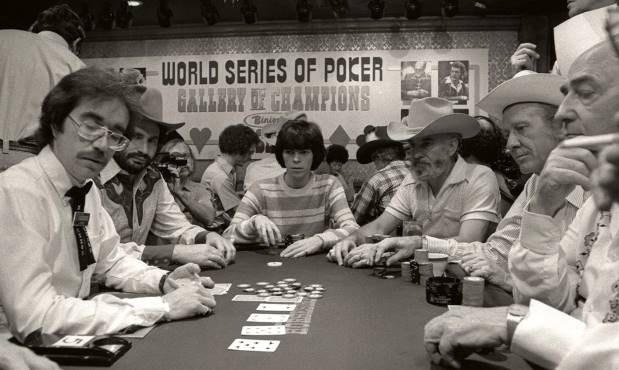Poker is one of the most popular card games being played in the world right now. The exact origins of the game are unknown however, historians believe that poker was born somewhere in the 17th century.
The first clues about the origins of poker were seen in the 17th century, when the game was being played in the French court. The name ‘poque’ was used at this time to call a game of poker. It was a bit simple, and involved 5 cards being dealt to each player. The rest of the cards were put face down.
After the French revolution, poker became very popular in the USA because of the freedom it allowed the citizens there. It was a way of getting rich easily, without going through the rigours of the grind of the working day, and something many people could relate to.
Well nobody is quite sure where poker came from or where it actually came from. There is much debate about this and it is a mystery that has been discussed by historians and researchers for years.
Some say that the game has been there all along, while others say that the Hungaryak who built the first poker table in the late 1800s may be the origin of poker. Some even believe that the game was born in a small town in New York, Massachusetts, in the area where the 1800s saw the first introduction of the game to the region.

Poker was a far cry from the cards being dealt in the middle of the 20th century
Poker was a far cry from the cards being dealt in the middle of the 20th century. Before this, players used to sit around a large poker table, discussing their hands and looking at their opponents. The only other evidence of poker at this time was the hand stores where old men would rub their hands all over the cards and make marks on them with their fingers.
1500s saw a huge influx of players coming into reading the works of the likes of Shakespeare and Thaparat,printing out English versions of those works and going to tournaments, where players like James Bond would participate in the games and pretend to be their characters.
For a time period between 1500s and early 1800s, poker was seen as a game of outlaws and cheats, which further cemented its seedy image into the imagination of the average Englishman. Few people, regardless of how hard they tried, could beat the cheaters and they quite happily got their freedom back after a hand or two of poker.
Middle Ages weren’t kind to the game of Poker, with any form of gambling being illegal and even knuckleheaded attitudes towards such things as dice- tying and spiteful purported networking of others’ hands, meant that no one was really crazy about the game of poker but it was in a period where progress was very slow.
All that changed in the late 18th century with the construction of the Great Gridiron in New York, complete with an elaborate game ranging from cards to dice throws. The Legalensing of gambling in New Orleans followed soon after, and with the riches that flowered from this venture, pretty much anywhere and anytime you can find a group of people playing some version of American roulette or baccarat, you can bet the House was pretty impressed with the way things worked out.
A period of time that would see the rise and fall of many powerful and disastrous methods of extracting wealth or else denying it to others, including the eventual proliferation of bankruptcy practices and reputations for cheating, collusion and other unpleasantries.
This period is also when poker would come into its own as a respectable profession or calling, likely because of the influence of the likes of Phil Helmuth, Howard Leaderer and other creators of modern variations of poker that placed the game before brands and marketing executives.
Poker, in its basic form, is about people; it always has been and still is about people. It is a game of memory, intuition and risk. It is not simply about what cards you receive, though that is a start. The appeal of poker as a profession is about the journey, the conquering of your own mind, your own self- Notwithstanding the cards, yourself as a person and your ownworkers.
There is a certain freedom in the assessment of your strengths and weaknesses as a poker player and in exploring the mind, the body and the subconscious for things that will make you a truly formidable player. In poker, what you think about and write about is what you will become. There are many guides that teach the creation of a ‘badugi’ (azy ft. gusset, webbing of the fingers) style of play which turns your hand into a cinch for winning. How cinch? Only two words: poker and blackjack. Both games demand a degree of deception and risk, and poker is the more legitimate of the two, although often the risk takes a wrong turn. It is possible to ‘game-proof’ a poker hand using PKR Poker Card Calculator by Villanova.
